Meredith Sue Willis's
Books for Readers #127
January 13, 2010
MSW Home
For a free email subscription to Books for Readers,
send a blank email to Readerbooks-subscribe@topica.com
Featured Contents This Issue:
Olive Kitteridge and Wrongfully Mine
Shelley Ettinger and I Have Words over Joyce Carol Oates
Coming Up: a special on Civil rights books
(February 1st is the 50th anniversary of the Greensboro, NC
Woolworth lunch counter sit-ins)
If you want to link to something in this newsletter, you should use the permanent link here rather than this page, which changes each issue.
A few weeks ago, I serendipitously read two extremely different books. First I read the highly recommended 2009 Pulitzer Prize 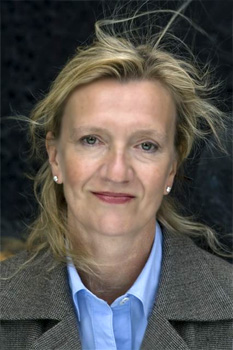 winning OLIVE KITTERIDGE by Elizabeth Strout (see her photo left), and then I read Isadore Johnson’s WRONGFULLY MINE, purchased on the street in New York-- my first toe dip into Urban Fiction. (See his photo below right).
winning OLIVE KITTERIDGE by Elizabeth Strout (see her photo left), and then I read Isadore Johnson’s WRONGFULLY MINE, purchased on the street in New York-- my first toe dip into Urban Fiction. (See his photo below right).
I’m going to be saying more about WRONGFULLY MINE than about OLIVE KITTERIDGE, because it’s the book that excited me. OLIVE KITTERIDGE is a collection of short stories set in a small town in Maine, and each story includes at least a mention of a woman named Olive Kitteridge, a teacher whose relationships with her husband and only son are committed, stoic, and far from successful. The collection works nicely to create a whole impression, and I’m pleased that a book about a small town and often hidden lives won a big prize. I wish Elizabeth Strout well, I hopes she writes many more, and I hope people keep reading her work because those people are likely to give my work a try too. So please understand that I’m glad I read OLIVE KITTERIDGE. I admire the book.
But– and you knew there was a but coming, didn’t you?– why did I have no trouble laying OK down whereas I read WRONGFULLY MINE about as rapidly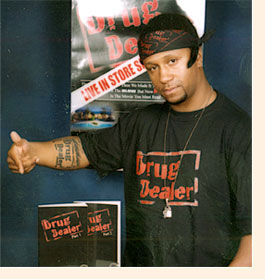 as I could.
as I could.
WRONGFULLY MINE is a two-volume novel that I bought on Thirty Fourth Street in NYC from the author himself. It is something called “Urban Fiction,” a genre that actually goes back to the sixties and writers like Iceberg Slim and Donald Goines (who died violently in 1974). These men wrote gritty stories of the streets that were in at least some cases commercially successful. More recent urban fiction has been published by hip hop/rap presses or by extremely small family run presses.
WRONGFULLY MINE is in two attractive volumes with a lot of nonstandard features in the book block: the spacing between lines is large, and the paragraphs are not indented. The missing indentations in particular irritate the English teacher in me, and while the spelling is okay, there are instances of odd misuses of words in the narrative (As opposed to within quotations where, of course, anything goes in the effort to capture human speech). The novel is larded with explicit sex (and casual sexism) and plenty of violent deaths, mostly over drug turf. The drugs are treated primarily as an economic product, and the selling turns out to be hard work. The dealers’ own drug of choice is alcohol.
That’s description, but it doesn’t explain why I would read a chapter/story of OLIVE KITTERIDGE, say to myself, That is really well done, or even, I’m moved by that, and then lay the book down. Whereas I had trouble putting WRONGFULLY MINE down. I would pick it up over other books, including OLIVE. Was it the novelty? Was it because I’d met the author and was interested as so many readers are in the connection between a human being and that human being’s imaginative work? Was it prurient interest over the somewhat repetitive sex and the hot guns? Am I just being contrary? I tend to think mostly that it was the energy, the sheer momentum. It made OLIVE KITTERIDGE seem too finished, too quietly complete. WRONGFULLY MINE jumps off the page with pell-mell enthusiasm for its characters and their sadly limited but wildly explosive lives.
Isadore Johnson is clearly ambivalent about his central character, Hassan “Burn” Campbell. Burn gets out of prison and immediately stirs up everything, commanding loyalty and respect from his “peeps,” as in “my people,” but setting off waves of gunfire, revenge killings, and in the end– and this is where the ambivalence comes in– he slips off into the night with a handful of diamonds to get a new start. His best friends are dead or in one case in a vegetative state. The destruction and waste of human life are enormous, and yet there is this attraction to a spirit, perhaps a satanic spirit, that keeps on going and thwarts a system stacked against young African-Ameican men. Burn is a splendid, dangerous, heroically thuggish character, more of a force than a person. Johnson clearly understands that Burn is a negative influence on the world– but he also appreciates the way Burn plays the straight world and survives– perhaps even thrives.
What is moving and even tender is glimpses of connections among the young drug dealers. There is nothing to admire in the bumbling federal task force that gets shot up and fails to capture Burn, nor is there much worthy in the women who include one bitch goddess power figure of a D.A. and a lot of whiny mothers-of-the-men’s-children and even more booty-call sex toys. Johnson tries to do a little more with Burn’s girlfriend, and one of the sex toys turns out to be a reasonably talented singer, but the only strikingly admirable human behavior is the loyalty among the young men. They have the kind of ties that are created in all one-generation masculine cultures like soldiers at war, or the boys raised separate from their mothers and sisters to become radical jihadists– or, of course, urban gangster culture.
The book offers a lot of insight into "the game," which is the hard work of selling drugs. There is an lack of understanding of anything beyond the immediate friendship group and enemies. No one seems to understand that if you kill this guy's brother, he'll want to kill yours and you too. In the structure of the book, any moment of calm–the young men watching t. v., talking on the phone to girlfriends, having sex (usually at the same time in the same apartment as the other young men are having sex), eating some fast food, joking with their "lil homies" – this almost always trumpets a violent scene with a lot of blood and bullets.
There is also a lot of ugly consumerism: Spending money is what the young men do when they aren’t working or having sex. Burn and his top lieutenant travel to resorts and sit by pools and have drinks or comment on the incredible luxury of the hotel. Lavish is good. Benzes are good. Diamonds are good, flawless bodies are good.
I don’t mean to praise the book more than it deserves, but I love to be swept away by a book, and sometimes it is the genre novels that sweep best. I am thinking a lot about the power of genre novels to do that-- to carry me on fictional rides through the rapids and leave me breathless.
SHELLEY ETTINGER AND I HAVE WORDS OVER JOYCE CAROL OATES
Shelley Ettinger had several blog posts at the end of 2009 on her admirable “Read Red” blog about Joyce Carol Oates. I hope you’ll read all of the posts at:
-
http://readwritered.blogspot.com/2009/12/amazingness-of-joyce-carol-oates-part.html
-
http://readwritered.blogspot.com/2009/12/unselected-quality-of-her-selection.html
-
http://readwritered.blogspot.com/2009/12/part-2-on-amazing-joyce-carol-oates.html
-
http://readwritered.blogspot.com/2009/12/big-issues-one-more-jco-note.html
Among other things, she writes, “At [Joyce Carol Oates’s] worst, when her fiction is at its slightest, it is slight, I think, only in comparison to her usual very high standard. It's never really bad compared to the vast dreck-loads of bad fiction foisted upon the reading public in this country....At its best, which it is impossibly often– I mean, come on, the greatest sluggers in baseball only make base hits a minority of their at-bats, most of the time striking out, so why should writers, who, I'd argue, rely on much harder to use body parts, be expected to hit one out of the ballpark every time they step up to the plate (tee hee who ever thought a sports metaphor would find its way onto this blog?), and yet she comes so close impossibly often– at its best, the  work of Joyce Carol Oates is stark raving brilliant."
work of Joyce Carol Oates is stark raving brilliant."
Shelley says she had been meaning to write about Oates for a while, but “got an oomph to do so when my friend the novelist and teacher Meredith Sue Willis wrote something about Oates, or at any rate one of Oates' books, in her newsletter BOOKS FOR READERS (Issue #123 at http://www.meredithsuewillis.com/bfrarchive121-125.html#123 then scroll down). She had just read BECAUSE IT IS BITTER AND BECAUSE IT IS MY HEART (which I have not read), and she'd also just read a novel by the bestseller list denizen Jodi Picoult, and she said that both writers have a ‘sense of entitlement that leads them to dip into places they haven't bothered to imagine fully.’ Well! Of all things! First I was flabbergasted at the suggestion that Oates even writes in the same universe as Picoult. More important, I couldn't imagine reading a JCO book that felt only partially imagined. I can't fault [MSW] for her specific critique since I haven't read this novel and who knows, perhaps BECAUSE IT IS BITTER is one of Oates' worst--but I can say that if there's one thing Joyce Carol Oates can do and usually does, it's to fully imagine the worlds she creates.”
There’s a lot more, and I repeat my recommendation of the blog posts on 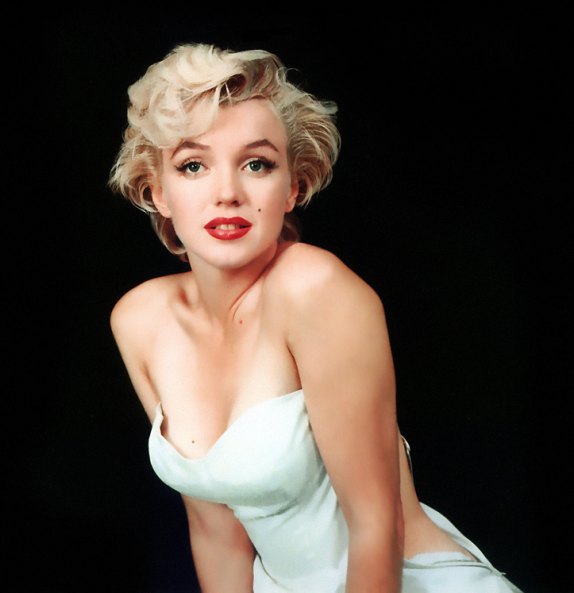 Oates, especially about her having been taken less seriously than a man of her accomplishments would have been. A lot of my complaint above about BECAUSE IT IS BITTER was about (and I don’t think I said this explicitly) how well Oates did her white characters compared to her black ones, who did not feel fully imagined to me. But on Shelley’s recommendations, I ran out and got BLONDE and I can say unequivocally that it is an excellent and fascinating book. It is enormous, and with large, large portions of it incredibly brilliant, a few passages pumped up with emotion, but over all a really powerful portrait of Norma Jeane a.k.a Marilyn Monroe and of her life and times– a perfect blend of a subject with JCO’s talent. She really nails Hollywood and nineteen fifties womanhood, catches MM’s wit and her fantasy life, her near-split personalities. It’s a big book with big themes.
Oates, especially about her having been taken less seriously than a man of her accomplishments would have been. A lot of my complaint above about BECAUSE IT IS BITTER was about (and I don’t think I said this explicitly) how well Oates did her white characters compared to her black ones, who did not feel fully imagined to me. But on Shelley’s recommendations, I ran out and got BLONDE and I can say unequivocally that it is an excellent and fascinating book. It is enormous, and with large, large portions of it incredibly brilliant, a few passages pumped up with emotion, but over all a really powerful portrait of Norma Jeane a.k.a Marilyn Monroe and of her life and times– a perfect blend of a subject with JCO’s talent. She really nails Hollywood and nineteen fifties womanhood, catches MM’s wit and her fantasy life, her near-split personalities. It’s a big book with big themes.
Next, I want to follow Shelley’s suggestion to read JCO’s Love Canal book, THE FALLS.
PAMELA ERENS ON TURGENEV’S FATHERS AND SONS
Pamela Erens Pamela says: "After spending time with Tolstoy and Dostoyevky, Turgenev seems so compact, so pellucid... no wonder Flaubert admired him. Fathers and Sons is both a portrait of a dynamic, even violent time in Russian history (the late 1850s, as feudalism was giving...more After spending time with Tolstoy and Dostoyevky, Turgenev seems so compact, so pellucid... no wonder Flaubert admired him. Fathers and Sons is both a portrait of a dynamic, even violent time in Russian history (the late 1850s, as feudalism was giving way to a more Western-style economic system) and a universal tale of aimless young men and women and the grownups who don't understand them. In the end it's really about the way we all shuttle between a conviction that life is meaningless and a conviction that even what is transient can be meaningful.(less) "
MORE BOOKS
Thulani Davis recommends the followng on Buddhism: “For a wonderful read on who is doing all the thinking and how the ego dominates daily life, I recommend ZEN MIND, BEGINNER'S MINDby Shunryu Suzuki. For a wonderful look at how trouble is an opening, I recommend WHEN THINGS FALL APART or secondarily START WHERE YOU ARE by Pema Chodron. And for practice, I am bound to recommend you experience the teaching in person as it is passed "one mind to one mind."
NEWS
Let me get the sad news over with first: Paperspine.com, the netflix for books, has closed its doors. See the final blog post at http://paperspineblog.com/2009/12/12/a-final-thank-you-to-our-members/#comment-539 . It turns out it was a garage operation, but very smoothly done, and couldn’t weather the economic downturn. Try booksfree.com (not really free of course) if you like the idea of a paid lending library for current paperbacks.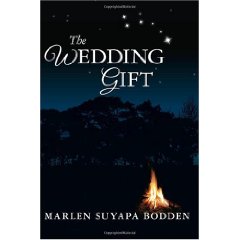
Marlen S. Bodden’s novel THE WEDDING GIFT (about a woman given as a gift in slave times) has just been published. See http://www.amazon.com/Wedding-Gift-Marlen-Suyapa-Bodden/dp/1439255830 .
Albert Meglin’s latest series of one-act plays has just been published: see http://stageplaystheatre.com/publish.htm . Also check the development/reading series page for when there will be a reading of some of his work at http://www.stageplaystheatre.com/reading_series.htm.
There’s a new short short by Carole Rosenthal in Citron Review at  http://thecitronreview.wordpress.com/2009/12/10/smile/
http://thecitronreview.wordpress.com/2009/12/10/smile/
Barbara Crooker’s latest poem is online at http://www.bhutantoday.net/happiness.htm
The American Association of University Women, NYC Branch, has recently named JUANITA TORRENCE-THOMPSON one of 10 women who “Make A Difference.” They said Torrence-Thompson “broke down barriers” and was especially “dedicated to Black History and to Diversity.” Juanita is a poet, writer, instructor, actress and Editor-in-Chief/Publisher of MOBIUS, THE POETRY MAGAZINE.
Burt Kimmelman’s new book of poems, AS IF FREE (Talisman House, Publishers), is now available from Amazon and SPD / Small Press Distribution. Jerome Rothenberg says, “Make no mistake about it: Burt Kimmelman appears here – & not for the first time – as a successor to the lineage of William Carlos Williams & George Oppen (to name but two), no less so for being a master of that lineage worn proudly.”
Shawn Dray Robinson http://www.shawndray.com has a new children’s picture book THE SKY IS THE LIMIT dedicated to our children who are living and those who are losing their lives every second. THE SKY IS THE LIMIT is available January 2010. Call 973.373.1377or e-mail dps@shawndray.com.
Spuyten Duyvil Announces the pre-publication Sale of Lynda Schor's SEDUCTION, STORIES OF LOVE AND ART– “a new and rare collection of tales of extraordinary madness.” Purchase a pre-publication copy and support Spuyten Duyvil's endeavors to bring extraordinary innovative literature and poetry to the reading public. Pre-publication copies are $16 + $2.50 postage and handling per copy. Please make checks out to: TNT Printworks and send order to TNT Printworks, 42 St. Johns Pl. Gdn Apt., Brooklyn, N.Y. 11217.
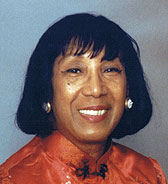
No comments:
Post a Comment